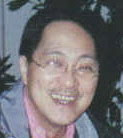GOTCHA By Jarius Bondoc, The Philippine Star, Friday, June 6, 2008
Is that all Arroyo officials can do in the face of economic crisis — give alms to the poor? Can’t it undertake projects that truly uplift generations? It’s not even their money they’re giving away, but ours. They’re trying to earn brownie points at our expense.
Their latest doles reek of gimmickry. The P500 each for four million families, P2 billion in all, to pay electricity bills is meant to mollify the city poor. At the same time, it serves to screen the admin’s failure to bring down power costs as promised since 2001. The money will come from taxes borne mostly by the middle class. That same middle class, the bulk of electricity users, already subsidize lesser users with “lifeline rates”. It’s even uncertain if the P2-billion’s intended beneficiaries have power connections. One thing sure, though, the admin refuses to slash its royalties from local natural gas and thus reduce power rates by P2 per kilowatt-hour. It needs the levy to repay foreign loans, contracted in secrecy in breach of the Constitution, and from which kickbacks were extracted.
The P1,500 for farmers to buy fertilizers is even sleazier. Malacañang announced it with much fanfare Wednesday, but couldn’t say how many farmers and where would receive the handout. At first you’d think it’s to appease rice planters who were prevented from selling high during the recent harvest because of admin raids of imagined hoarders. But with no list of verified recipients, you’d realize that the usual admin thieves are just out to steal the outlay. The P780 million they snatched in 2004 thru Jocjoc Bolante’s ghost fertilizer deliveries has not sated them. Neither has the P2 billion in 2006 from ghost swine distribution.
Malacañang tried to look busy with a swirl of earlier doles. Its cheap subsidized rice papers over its failure to raise palay harvests, due to greed for kickbacks from importing cereals. A P2-per-liter diesel grant for jeepney drivers, still to be implemented, obscures its inability to help them convert to battery-powered engines. Other “Band-Aid solutions” to crisis: a separate P500 per family for food and P300 per child, shedding of uniforms in public schools, freezing of tuition in state colleges this semester, and forcing telcos to un-charge text messages and builders to lower highway tolls.
Giving to the poor is a virtue. But even the bishops are frowning on admin giveaways. They know that doles, because unmatched by projects with long-lasting effects, only breed mendicancy.
* * *
Metro
An earlier LTFRB leadership already had put EDSA in order in 2003. Guided by studies, it decided to limit the route to only 3,500 buses to lessen traffic, pollution, passenger waiting time, and cutthroat competition. But it actually approved only 2,900 franchises since the rest had stayed unfilled for years by influence-peddling holders.
A new team took over LTFRB in 2006. Within a year, it increased the number of buses on EDSA 83 percent with 2,400 permits. The buses aren’t new though, just old “colorums” that plied the route with no franchise and so were eased out in 2003. LTFRB now cites a purported study that the present 5,300 units are just right for EDSA.
Still the operators who dutifully paid franchises all these years groan that they were never consulted. Metro officials are having headaches enforcing a new single-ticketing scheme because the additional 2,400 buses were not part of the original traffic scheme.
Meanwhile, new routes await opening where truly needed. A few dozen kilometers from EDSA are Laguna’s booming industrial zones. Employees need to be transported to work from surrounding Batangas, Cavite and Quezon provinces. Yet the LTFRB is more bent on clogging up Metro Manila than boosting suburbia.
* * *
Patria Buenaflor Deocampo reacts to my piece Monday on historical accounts from Raul Rodrigo’s book, The Saga of the Lopez Family:
“I am concerned about the name of my father, Tomas Buenaflor. A story in El Tiempo’s issue of Oct. 2, 1929 alleged that Gov. Mariano Arroyo and police chief Marcelo Buenaflor, brother of Congressman Tomas Buenaflor, were receiving protection money from illegal gambling. I am the only surviving daughter out of 12 children who can testify to my father’s character. I knew him as a person of integrity and public servant of Dumangas. He began his political career as municipal councilor, 1912-1916, and municipal president, 1916-1922. He was congressman of Iloilo City’s 4th district, 1928-1941. Constituents loved him for his relentless and dedicated service. I never knew him to have been bribed by anyone, particularly from jueteng.”
* * *


